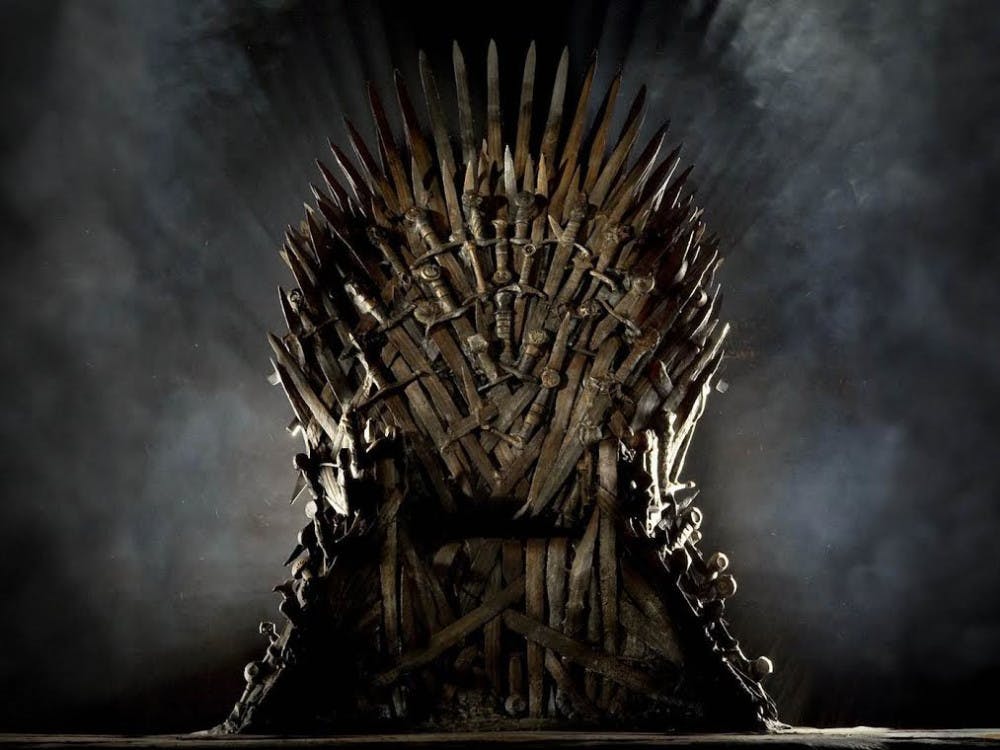Everyone seeks Beyoncé’s approval - actress Emilia Clarke included. Clarke, who plays the Mother of Dragons, First of her Name Daenerys Targaryen, feared Beyoncé would hate Daenerys after the recent season. Clarke showed no ignorance with this worry. Now that we know what we know about Daenerys, season eight of Game of Thrones has us wondering: “Do the writers...possibly...not know women?”
The most well-funded show in the history of television has failed consistently in delivering plausible arcs for almost every female character. Maybe that’s because out of 73 episodes, only four were written by women and although it had 19 directors over the near decade it ran, only one of those was a woman. It’s difficult to subvert harmful tropes when your writing room looks like a Boy Scouts of America meeting in Springfield, Missouri.
Let’s begin with a woman who could be seen as a victor of the game: Sansa Stark. Although Sansa was viewed as one of the best candidates for the Iron Throne, the “Queen of The North” ending was the best conclusion for her narrative. However, the show’s framing of her personal growth was problematic to say the least.
It was a questionable decision to show Sansa’s rape in season five. The bigger issue was how the writers positioned it, along with the other abuse she was subjected to, as her pivotal moment of growth. In episode four of the final season, Sansa told The Hound she would have remained a “little bird” her entire life without Ramsay, Little Finger and the rest of her abusers. While it is true abuse and trauma impact a person greatly, a survivor’s growth is a product of their own strength, not to the credit of the person or people who dehumanized them.
Watching the final episode of Game of Thrones though, it is difficult to view Daenerys as anything but a crazed villain. In the last two episodes, the showrunners reduced a complex character into a caricature of a hysterical woman.
Hysteria was used as a psychological diagnosis for centuries as it was synonymous with being overly emotional. Throughout the series, Dany made some questionable decisions, but the showrunners actually did a decent job of showing us her reasoning, until the last two episodes.
In episode five, “The Bells,” Dany is fresh from the loss of her two most trusted confidants/best friends and two of her “children,” but somehow all her personal sacrifices seem to be forgotten. In the first scene we see one of her advisors, not only planning treason, but actually attempting to assassinate her. We only get one scene showing the queen tormented by this isolation and betrayal though, because the writers decided to stop showing scenes from her point of view. Instead, the majority of the episode focuses on the destruction she caused. While it’s admirable for the showrunners to draw attention to the plight of innocents, most viewers were taken aback by The Breaker of Chains’ dramatic change. If the writers had more time, Dany’s ending could have made sense. Instead, she ultimately seemed like a deranged power-hungry trope.
We give props to the writers for managing to muster enough courage to keep Arya Stark and Brienne of Tarth away from the pit of female character destruction, but even this triumph is bittersweet. The framing of Arya losing her virginity was refreshing compared to the usual “first times” we see too often. Female characters having sex for the first time usually show timidness, pain and regret in most media. Here, Arya owned her sexual experience. It was on her terms, and she was not afraid to show it.
Brienne of Tarth’s strength only made her more admirable. Despite being introduced with the context of her foolhardy unrequited love of Renly Baratheon, the first female knight in the Seven Kingdoms was a bastion of honor and a beacon of the story’s idea that we make our own destinies. Her story brings inspiration to the misfits who never stopped being true to their aspirations, regardless of how unlikely the chances of success.
The triumph in Arya and Brienne make the defeat of characters like Sansa and Daenerys so much harder to swallow. It seems the characters who embodied more masculine qualities were allowed to succeed, while those closer to the traditional feminine norm suffered the most. Hopefully, the spin-offs will have more women behind the camera, so masculinity will no longer be a requirement to winning the game of thrones.
Irone Throne (HBO)






